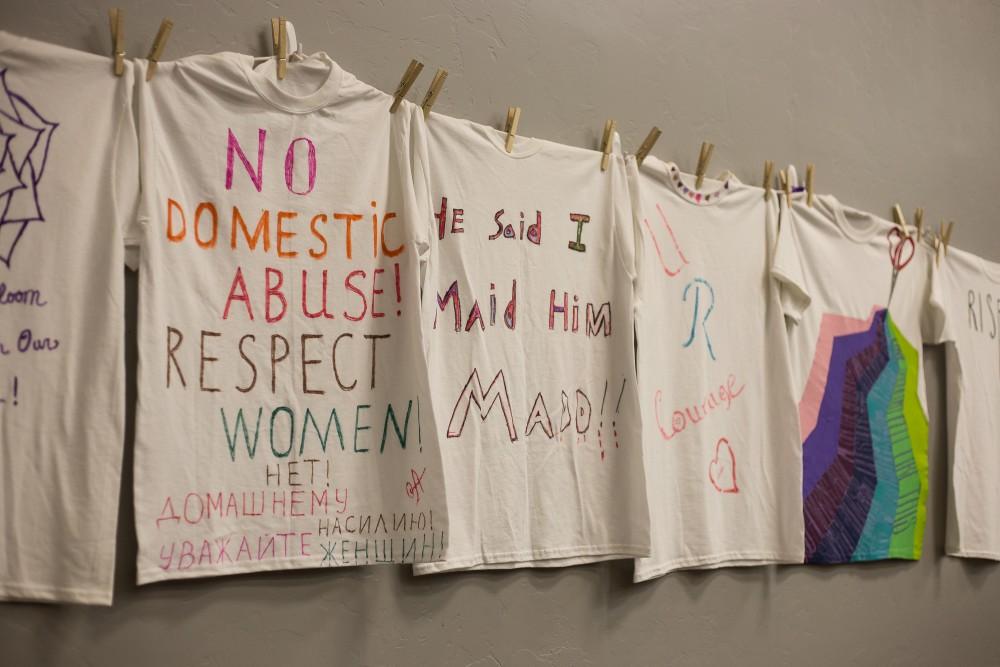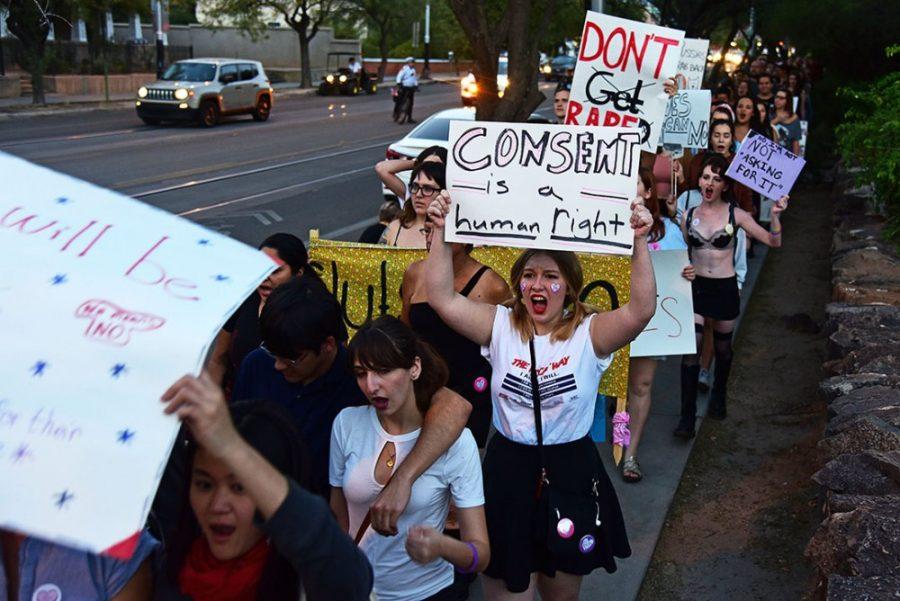The University of Arizona Consortium on Gender-Based Violence is hosting its first annual conference for free at the Student Union Memorial Center Friday Nov. 3 from 6:30 p.m. to 9:30 p.m. and Saturday Nov. 4 from 9:30 a.m. to 3:30 p.m. The event will also act as a soft launch for the consortium itself.
The conference will examine the pervasiveness and effects of gender-based violence and the cultural attitudes and practices that allow it to continue.
“Gender-based violence is really violence against anyone who is perceived to be weak within the construction of normative masculinity,” said program coordinator Amalia Mora. “[It] happens daily.”
The conference will take a survivor-supportive attitude in order to educate both UA students and Tucson community members on what can be done to reduce gender-based violence and be a resource for survivors.
Both male and female students are encouraged to attend. The conference will address ways gender-based violence affects the lives of people of all genders, races and ages.
RELATED: Women’s Resource Center painting Pima purple
Included in the conference will be performances, workshops, panel discussions and several distinguished speakers. The keynote among them is Brooke Axtell, a survivor’s advocate and founder of She Is Rising, a healing community for survivors of human trafficking and gender violence.
“I believe in any social justice effort we must amplify the voices of those directly impacted by a human rights violation and support those who are most vulnerable to creating their own solutions,” Axtell said.
This inaugural conference also marks itself as a soft launch for the UA Consortium on Gender-Based Violence. The consortium is made up of faculty and staff who have expertise in the field.

“Our goal is create both a physical center and a virtual hub that brings together those who are providing direct support and services to students who experience gender-based violence, along with those who conduct research in these areas,” said Melissa Vito, a founder of the consortium.
The consortium and conference are the results of a largely grassroots movement. Vito, Mora and their colleagues spent years going out into the Tucson community and acquainting themselves with leaders in the field of gender-based violence and survivor advocacy.
This conference comes at a time when public awareness of widespread violence and harassment toward vulnerable people is increasing dramatically. The exposure of Harvey Weinstein’s troubling offenses toward women and the spread of support for survivors, partly through the use of #metoo, have created a fertile environment to discuss systematic harassment and harm.
“It kind came at this really poignant moment wherein people are actually starting to really acknowledge how pervasive gender-based violence is in so many levels of society,” Mora said. “One thing we really want to highlight is that it’s been going on for so long.”
RELATED: UA women share their thoughts on Trump’s first 100 days
Event attendees can expect to walk away with an increased awareness of the daily impact of gender-based violence, as well as what they can do about it.
The conference aims to address the tendency to feel overwhelmed, which plagues many citizens, by providing students and community members with the tools to start engaging in survivor-driven activism.
Given the sensitive nature of the event’s topics, multiple counselors will be on hand at the conference should any attendee feel triggered. Additionally, two of the scheduled panelists are trained social workers.
Mora addressed the fact that for many women, it is unlikely that this will be their first time dealing with issues of gender-based violence and harassment, as it is present in many women’s lives. However, she remains hopeful that this conference can provide inspiration, validation and healing.
“I think for women and other vulnerable folks, it’s a great opportunity to feel validation … to be around people who recognize that this is happening to so many of us and so many of you,” Mora said. “And then also for male students to feel that they don’t like what’s going on … and they don’t know how to stand up to it because they’ve been pressured their whole lives too.”
Follow Vanessa Ontiveros on Twitter








